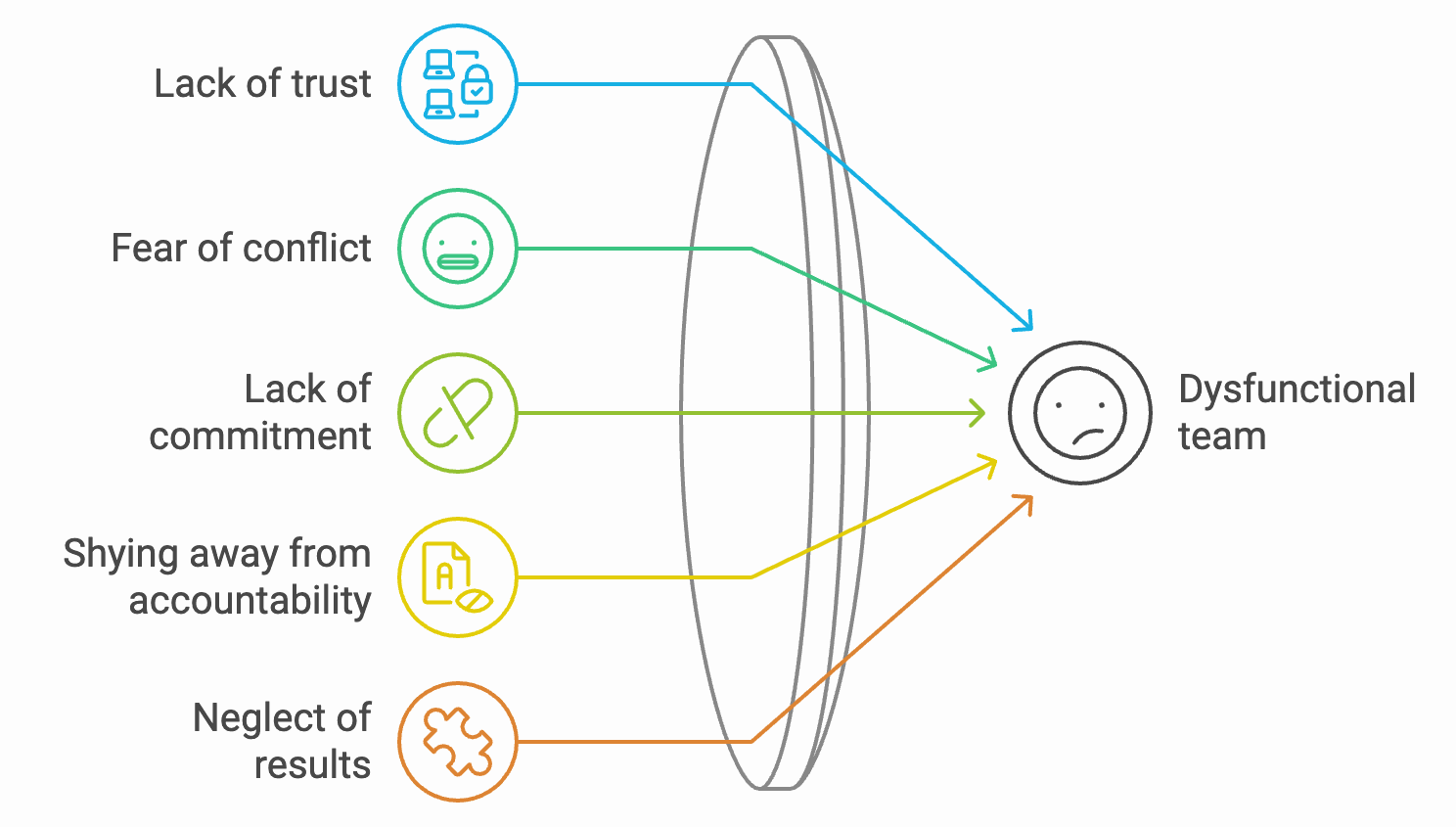Performance
Successful teamwork - developing high-performance teams
Imagine if your team was set up in such a way that it could implement customer requirements directly and efficiently. High-performance teams make exactly that possible: they are customer-oriented, flexible and efficient. They ensure that your organization delivers reliably and quickly. But how do you get your team to this level? The answer lies in a targeted development process that enables teams to get the best out of themselves - for the benefit of your customers and your organization.
What makes a high-performance team?
A high-performing team is characterized not only by good alignment and collaboration, but also by a culture of psychological safety. How comfortable is your team with taking risks and openly discussing mistakes? When your team members feel safe to share their ideas and concerns without fear of negative consequences, it promotes innovation and quality.
In addition, such teams are based on clear values and principles. Trust, openness and continuous learning are crucial for making quick decisions and implementing projects in a targeted manner. Is your team built on a common set of values? This is the key to strengthening autonomous action and commitment.
Transforming dysfunctions into performance growth
Are you facing challenges in your team, such as a lack of trust, conflict aversion or a lack of accountability? These obstacles are common in many teams and can have a significant impact on performance. This is where Patrick Lencioni's model of the 5 dysfunctions of a team can help.
.png)
Patrick Lencioni's model of the 5 dysfunctions of a team describes five central obstacles to effective teamwork:
- Lack of trust: Team members do not show weaknesses or mistakes, which prevents openness.
- Fear of conflict: Disagreements are avoided, which leads to unspoken problems.
- Lack of commitment: Without open discussion, there is no commitment to joint decisions.
- Shying away from accountability: Team members do not speak to each other about misconduct or poor performance.
- Neglect of results: Team goals are not prioritized, instead everyone pursues their own interests.
Working with us, you identify the specific dysfunctions of your team and we show you practical ways to remedy them. In addition, we offer frameworks such as Scrum, Kanban and OKRswith which your team can regularly reflect on how they can work together and perform even better. With Coaching Interim roles and targeted facilitation we support you in overcoming communication barriers and unleashing the full potential of your teams.
Contact us or make an appointment. We are Timo Foegen, Yvonne Fischer, Tina Eisoldt, Daniel Votta and Lutz Koch. We look forward to accompanying your teams .
Limits of a single team: think in larger structures
Even if your team is functioning excellently, you may run into limitations - especially as your product scales or the organization grows. In these situations, it is crucial to strengthen cross-team collaboration. Individual teams alone are not enough to manage the complexity of a growing company.
That's why we not only support you in developing individual teams, but also in establishing cross-team collaboration. Find out how you can increase the efficiency of your company through better interfaces and optimized communication between teams. You can find out more on our page on cross-team cooperation.
High performing organizations
The ability to deliver and customer focus are crucial characteristics for the success of any company. When teams and departments work together reliably and effectively, products and services are delivered on time. Read here which building blocks are relevant for this.
Cross-team collaboration
When teams work together smoothly, not only does the ability to deliver increase, but so does customer satisfaction. Bottlenecks are avoided, innovations are promoted and customer requirements can be fulfilled more quickly.
Kanban Trainings
We teach you how to do Kanban yourself and how to do it better - with certified training courses from Kanban University.
Scrum Master
Do you want a team to pick up speed quickly? But you don't have a Scrum Master right now? We can help you.
What is an agile mindset?
An agile mindset is the cultural basis for an agile organization. On the way from a traditional to an agile organization, not only agile methods are important, but also a cultural change towards a more agile mindset.
Your contact person:
Mark Kepler
